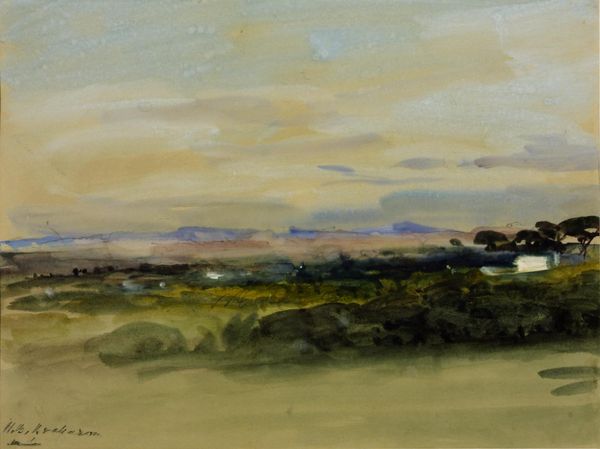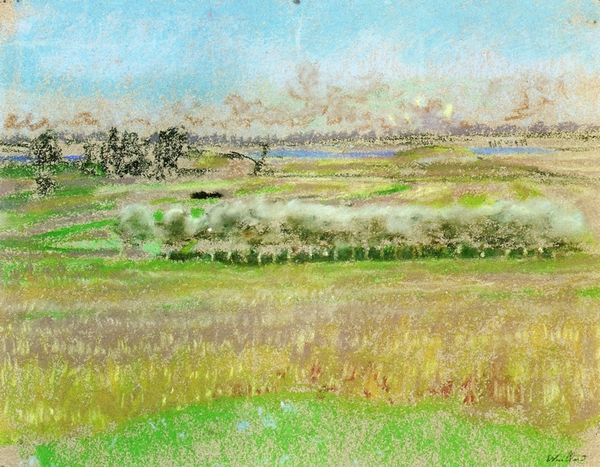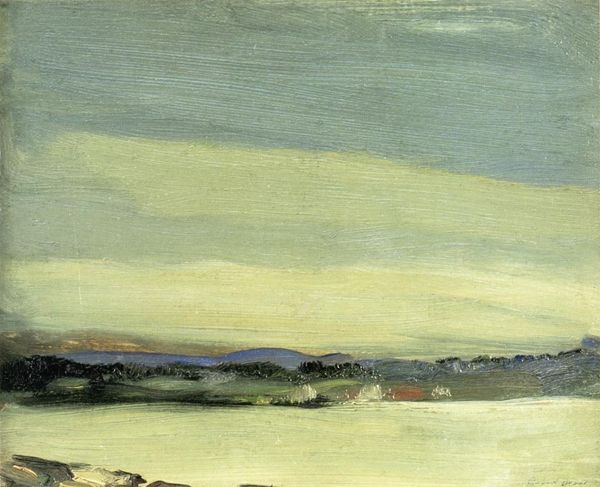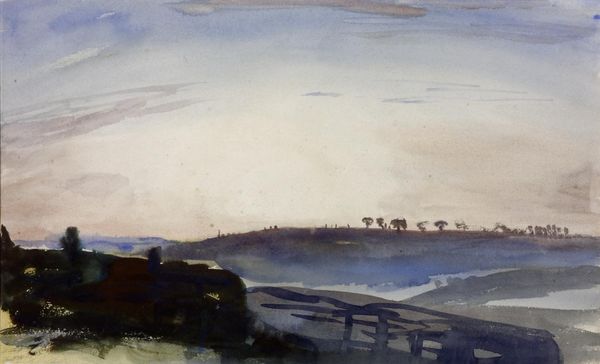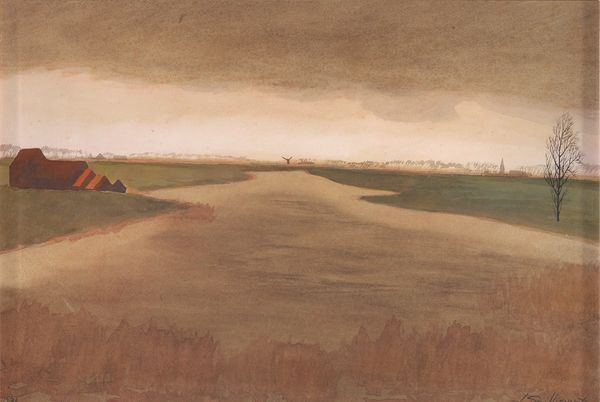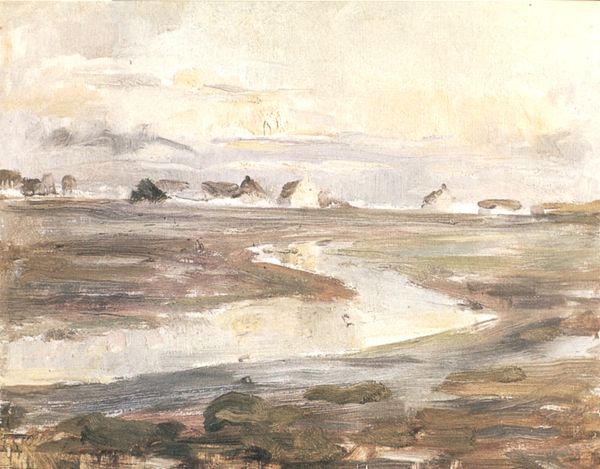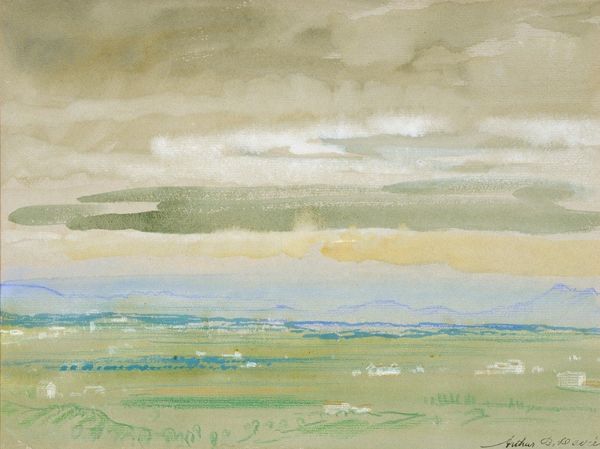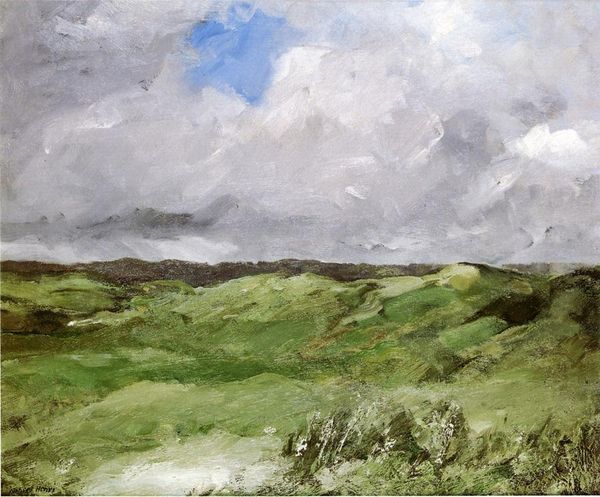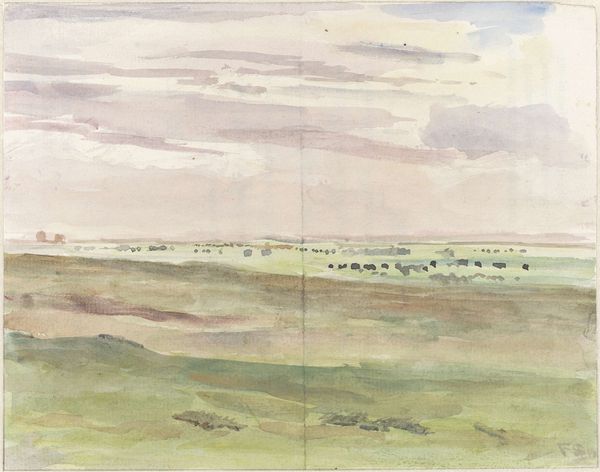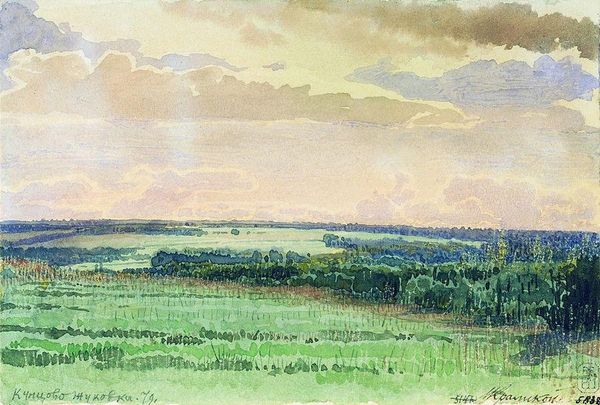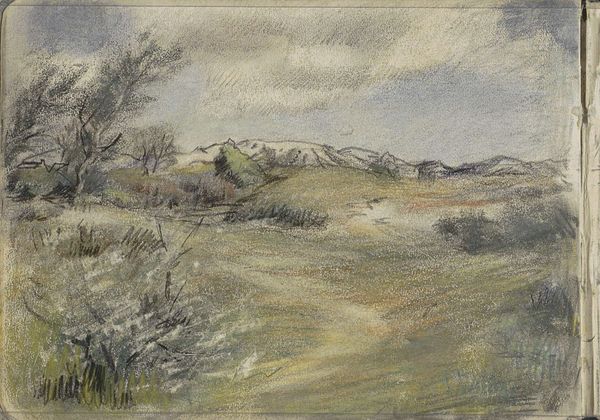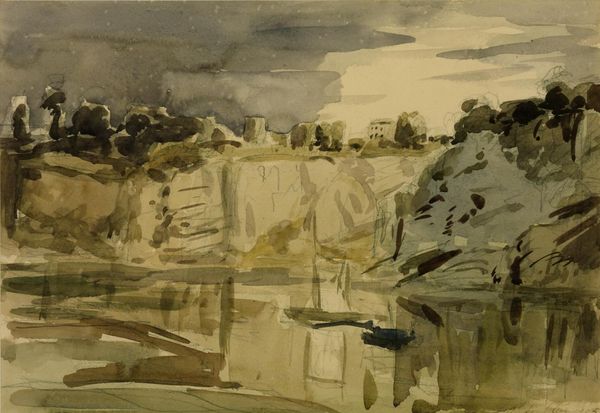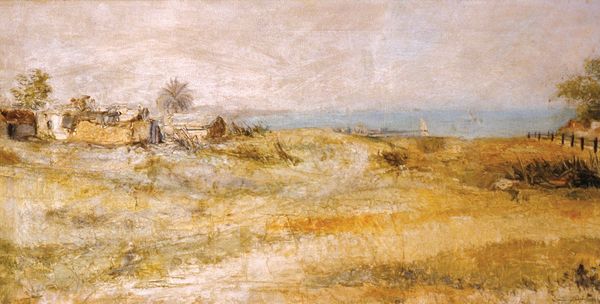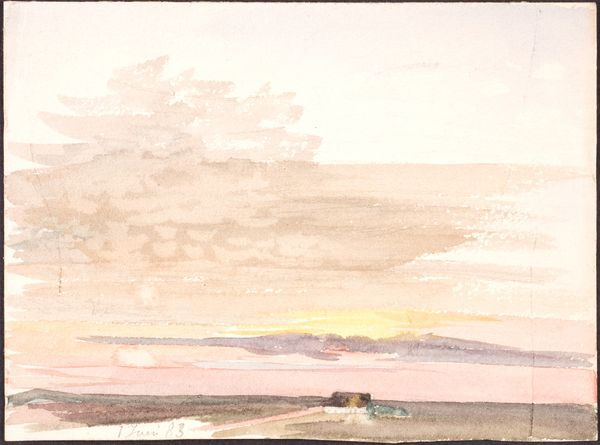
painting, plein-air, watercolor
#
dutch-golden-age
#
painting
#
impressionism
#
plein-air
#
landscape
#
impressionist landscape
#
oil painting
#
watercolor
Copyright: Public domain
Curator: Looking at Van Gogh's "The Heath with a Wheelbarrow," created around 1883 using watercolor and oil paint, what strikes you first? Editor: The light, honestly. It’s like that in-between time, after a storm or just before sunset, where everything feels hushed and heavy. You know? It’s moody. Curator: Yes, a distinctive characteristic that marks his work during this period. At the time, Van Gogh was intensely focused on the life and landscape of the peasants, reflecting a trend of Realism and an increasing politicization in the art world regarding the labor class. Editor: Realism, huh? I guess. To me, it feels more…emotional than objective. I can almost smell the damp earth, the looming clouds. The wheelbarrow, sitting alone—it suggests hard work, solitude. But also something sturdy and enduring. Curator: And indeed, his commitment to depicting the lives of the working class certainly informed his approach. It's interesting that despite this focus on Realism, the visible brushstrokes, especially in the foreground, push it towards the Impressionist style, showcasing the influence of the changing art scene in Europe. Editor: So he's pulling from two different aesthetics, then, huh? It doesn't strike me as belonging to either, precisely. And the colors, very earthy—browns and greens dominating the landscape. And that smear of pink in the sky. Curator: Exactly! Van Gogh's move towards juxtaposing and exaggerating colors came a bit later in his career, so in this, he displays an evolving sense of color theory rooted in observation, not yet full abstraction, showing a distinct artistic sensibility. Editor: Evolving. It's that interesting edge I was noticing that I couldn't quite place! What do you take away from this piece in the broader context? Curator: It offers an intimate view into the art world during the late 19th century; it’s art that’s shifting from objective portrayals to personal experiences, and a move towards more subjective representations. Editor: Absolutely, the move into emotion and mood, away from academic stuffiness, to the raw feeling of being alive and mortal in this world. Makes you want to kick off your shoes and wander off, you know?
Comments
No comments
Be the first to comment and join the conversation on the ultimate creative platform.
